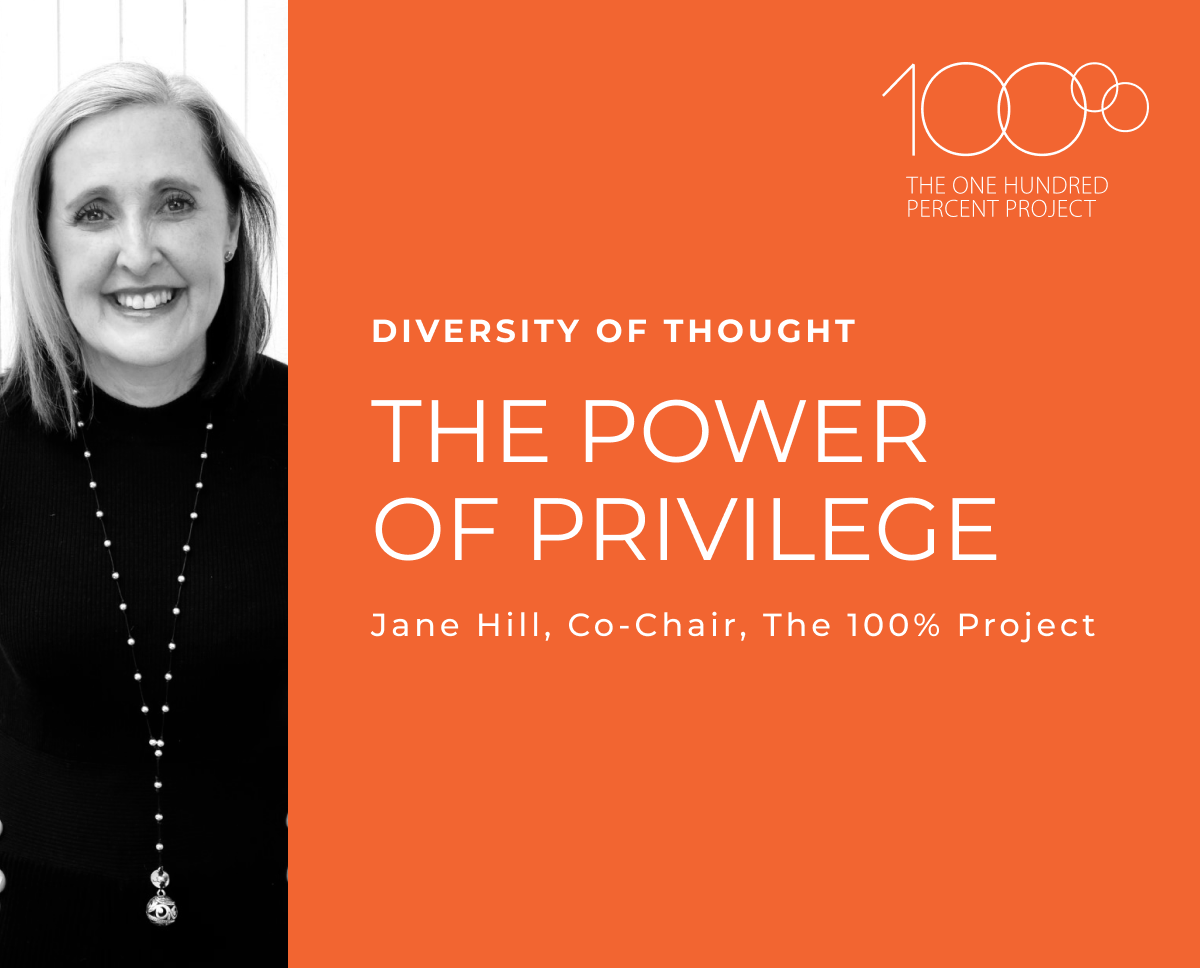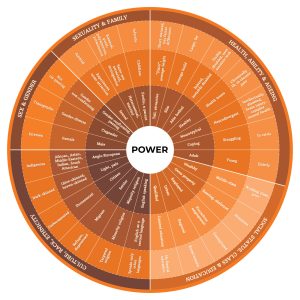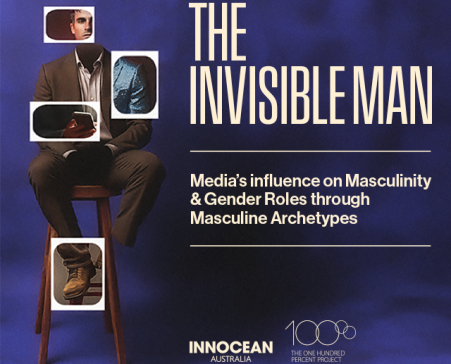Diversity of Thought Blog
The Power of Privilege – Jane Hill, Co-Chair, The 100% Project

“Privilege is invisible to those who have it.”
This quote, attributed to Prof Michael Kimmel rings true – many of us are unaware of our privilege – be it because of our gender, race, sexual orientation, wealth, health or education.
Recently a man said to my (male) colleague, “I support gender equality, but I think the conversation has gone too far”. And he is an ally. It’s a tough one to navigate. Men absolutely need to be advocates and part of the conversation, but some still see gender equality through a loss lens despite being decades away from closing the gender pay gap or achieving 40% of women in senior leadership roles in most organisations and/or on boards. Doesn’t a ‘rising tide lift all boats’? What should we do?
Here are some ideas:
- Dispel myths.
Of course, meritocracy is the long-term answer but only when we have a more equal playing field. Today, there’s still more “mirrortocracy” than meritocracy. The wheel of privilege is a great tool that shows how much privilege many of us have – and take for granted. Where do you sit on the wheel? Does it surprise you?

Graphic inspired by Intertwine Privilege Wheel Handout
- Progress over perfection.
Perfection is unachievable so let’s focus on inches. What’s one thing you can do within your organisation to ensure conversations around gender equality are not shut down? This might be encouraging male colleagues who have recently become fathers to take all the parental leave available to them.
- Educate ourselves.
Rather than (another) Leadership program for women, why not run an event for men?- Reach out if you’re interested in being part of or bringing together a group of male leaders: to bake pies and talk about privilege and equality, led by our friends at Fckthecupcakes,
- Run an allyship program led by our partners at People Measures entitled Step Up.
Both initiatives are evidence based and will build awareness, acceptance and commitment to a more equal future.
- Lead with empathy.
It’s very easy for people to become defensive and shut down the conversation and we lose the opportunity to learn from each other. Try to understand the other person’s point of view – you will likely learn something, and it will help continue to shape your own perspective.
- Role model leadership.
Do whatever you can to ensure your team has a minimum of 40% males and 40% females in your team. Your team and business results will improve, as will your own EQ.
The 100% Project is conducting research on the role of gender stereotypes in the media and their impact on gender equality. I hope the results help us move away from traditional gender tropes and toward a more contemporary reflection of society and the different roles we all play.
Follow The 100% Project if you’re interested to learn more about our research.

